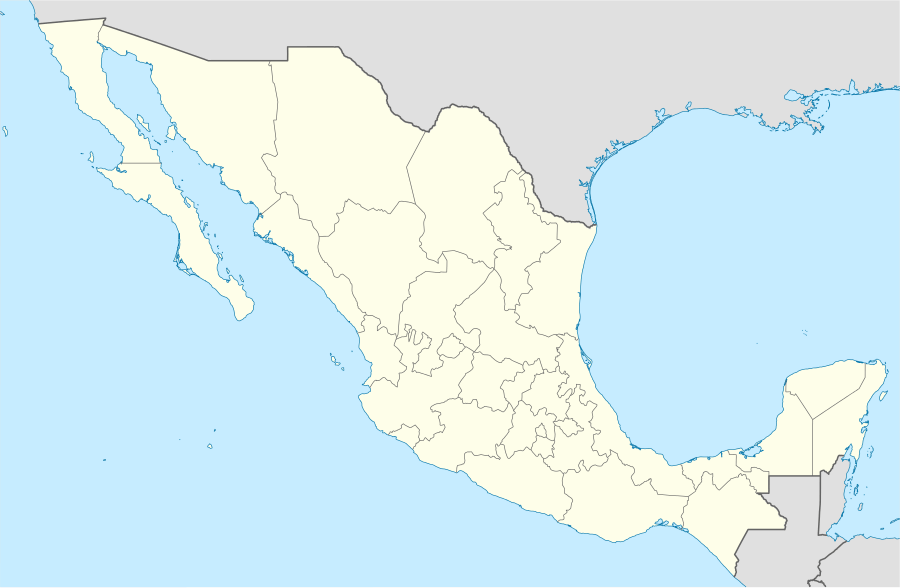Chahuites
| Chahuites | |
|---|---|
| Municipality and town | |
 Chahuites Location in Mexico | |
| Coordinates: 16°17′N 94°12′W / 16.283°N 94.200°WCoordinates: 16°17′N 94°12′W / 16.283°N 94.200°W | |
| Country |
|
| State | Oaxaca |
| Area | |
| • Total | 160.75 km2 (62.07 sq mi) |
| Population (2005) | |
| • Total | 9,929 |
| Time zone | Central Standard Time (UTC-6) |
| • Summer (DST) | Central Daylight Time (UTC-5) |
Chahuites is a town and municipality in Oaxaca in south-western Mexico. The municipality covers an area of 160.75 km². It is part of the Juchitán District in the west of the Istmo de Tehuantepec region
As of 2005, the municipality had a total population of 9,929.
History
The history of Chahuites goes back to 1895, when the Román Ramírez and Gamboa families choose this region to establish their homes. They built with palm and wood on a high piece of land surrounded by vegetation. While living in this region, the first settlers were surprised by the discovery of dens of mouse-like animals known as tuza, because of this discovery the settlers decided to name the place "El Tuzal". Over time more settlers like the Zacarías brothers and Juvencio Fuentes arrived in the region.[1]
That was how life in the region developed until 1905 when General Porfirio Díaz, president of Mexico, developed the infrastructure of the region and its official district Tepantepec. This project drastically changed life in El Tuzal since many people working on the new infrastructure decided to settle there too. The region grew because the villagers obtained good crops in both the rainy season and in the dry season. That is why the name of the region was changed to Chahuites, which means wet ground. As the region continued its development, the settlers began the process required to become an independent municipality instead of being part of Tepantepec. In 1948 the Chahuites finally became independent.[1]
References
- 1 2 "Chahuites". Enciclopedia de los Municipios de México. Instituto Nacional para el Federalismo y el Desarrollo Municipal. Retrieved June 12, 2009.